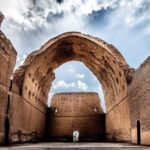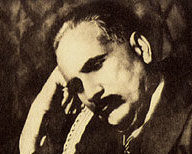
We perhaps can see in this demonstration that the ancient Muslim scholars were open to the universal knowledge available at their time, with all its richness and imitations. Important here is the general spirit that grasped that investigations of expressions and analogies are human, and common to all people, and that any difference or specificity relates to the text to be interpreted and not to the mechanisms themselves of interpretation. This open attitude became lost during the centuries of decadence and dissipated altogether in the modern era.
FUNDAMENTALIST REVIVALISTS have been exaggerating and emphasizing their claims to the point that you now see and hear people who are unable to distinguish between the nominative and accusative cases, and have no knowledge of the absolute and the qualified, of the inferred and the required. They nonetheless claim to be able to derive the inferences from the Texts and close every discussion on this with the phrase ‘no ijtihād may be made concerning a Text’ because they are unaware of the fertile researches contained in the heritage. When they deal with issues touching on Texts, they are modern-day Kharijites playing fast and loose with interpretation, takfīr and violence, all from their lack of knowledge and understanding.
So far, we have not dealt with anything but the subsidiary-ijtihād, represented by the seeking of knowledge on rulings of branches of the same genre, covered by the general inference of a phrase, or one that comes as a result of analogy, or from applying the universal in the particular. So let us now ask another question: Is it possible for all new cases to be dealt with by investing in rulings established from textual expressions or analogies?
We will try to answer this question through an incident which carries some authoritative reference value. First we will review how it was reported by the ancient annalists, and then reflect upon it and analyse it. In the year 17 AH / 638 AD, the Muslims gained complete control over Iraq, wresting it from the hands of the Persians. At the time, an important problem presented itself: the fate of the huge lands, most of which they had seized by fighting. This was classified as ghanīma (‘booty’) and not fay’ (‘grant’). The ruling on ghanīma was that four fifths were to be distributed among the fighters with the remainder handed over to the caliph. A dispute arose among the senior Companions on the subject, with some demanding that the division be carried out in that way, and others opining that this was not feasible.
When they deal with issues touching on Texts they are modern-day Kharijites
Luckily the second opinion prevailed, given the magnitude of the disaster that would have taken place if vast areas of agricultural land had been divided up among the fighters, most of whom knew nothing about agriculture. Horrific famines would have overtaken the population of Iraq and the fighters themselves, and the Islamic conquests would have been considered a crime against everyone. Moreover, the vast area of Iraq cannot be compared to the area of territory concerning which disputes took place during the Prophet’s era, for any analogy to be practically drawn from this.
This issue was not resolved by inferences drawn from textual expressions nor by any forms of analogy. The solution that the Muslims accepted at that time was to endow a quarter of the land to the Muslims’ treasury. This was a new and unprecedented ijtihād demanded by the overriding interest of the community and the proper disposal of the property. In this case the Muslims did not apply the principle of ‘no ijtihād may be made concerning a Text’ nor any form of analogical reasoning later featured in the books of uṣūl al-fiqh. We might term this type of ijtihād a ‘unique ijtihād’ that the ancient authorities neglected to distinguish from the categories of subsidiary ijtihād. And if the time interval from the Prophet’s era to the second caliph ‘Umar ibn al-Khaṭṭāb saw such unique changes that necessitated equally unique jurisprudence, then what about the sum of fourteen centuries of Muslim history?
It does not take much to conclude that if we take a reference period (a) and then the historical distance (b), then the relation between subsidiary ijtihād and unique ijtihād is inversely proportional, the former contracting in size and the latter expanding according to the length of the intervening time (b). Looking at the books of fiqh throughout the ages, we find them working contrary to what this logic would expect. The reason for this, in my opinion, is not that Islamic societies somehow froze, but that the books of fiqh and its principles came to a stop in the fourth century AH, and therefore continue to reflect the complexities and developments of the societies of that time.

Suggested Reading
Let us consider another dimension in the authority reference example related to the distribution of the lands of Iraq, by posing the following question: Did the caliph, the army commanders and the Shūrā council members take the decision in their capacity as a group of jurists, or did they take it in their capacity as the body entrusted with the overriding interest of the society? And if we imagine the same scene being repeated in the modern era, would this decision have been taken in a jurisprudential council or in parliament? Would the authority in this case be what the ancient figures Zayd and ‘Amr said, or would it be determined by the body entrusted with the higher interest of the group, in the specific context in which the incident took place?
The ijtihād we need in this modern era cannot come from inferences from textual expressions and forms of analogy
If we accept the logic of the analysis contained in this article, we necessarily come to the following conclusion: The bulk of the ijtihād we need in this modern era cannot come from the subsidiary-ijtihad that focuses on inferences from textual expressions and forms of analogy, but from the unique ijtihad that focuses on the issue of interest, where the place for the discussion is in parliament where those qualified to engage with the issue represent the community and its higher interests. The biggest problem is the absence of any distinction being made between these two types of ijtihad and the treatment of all cases from one and the same angle. This is what is preventing the establishment of a new ijtihad, for it is not enough to call for opening up the door to ijtihad unless the appropriate groundwork for its establishment is there.
A real proposal made in this direction, one that remains a marginalised orphan among Muslim writers, is what Muhammad Iqbal wrote seventy years ago:
“The transfer of the power of Ijtihad from individual representatives of schools to a Muslim legislative assembly which, in view of the growth of opposing sects, is the only possible form Ijma [consensus] can take in modern times will secure contributions to legal discussion from laymen who happen to possess a keen insight into affairs. In this way alone can we stir into activity the dormant spirit of life in our legal system, and give it an evolutionary outlook.” [1]
[1] Muhammad Iqbal, The Reconstruction of Religious Thought in Islam, p.138. Iqbal’s work may be viewed online here.
See Opening up ijtihād – opening up the mind – Part 1 here

